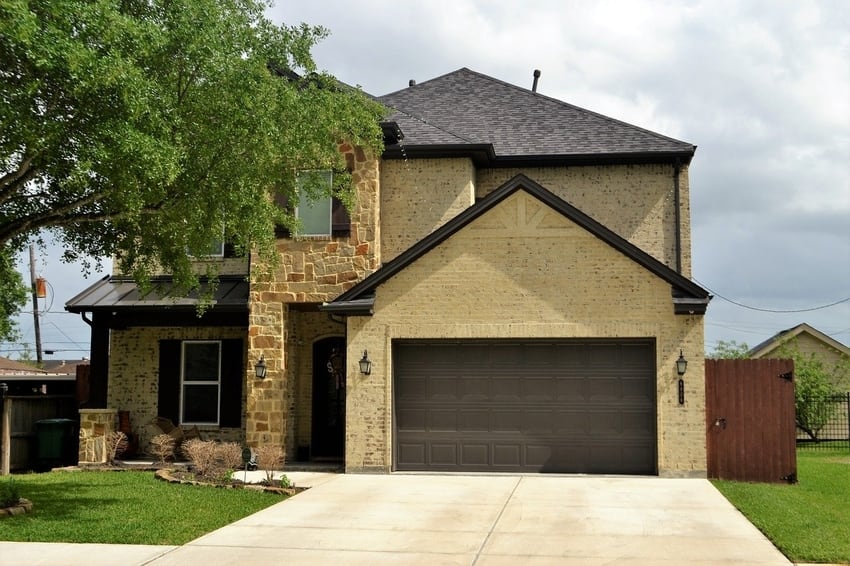Ten Ways to Prepare Your Garage For Summer

Ahh, summer. Even with COVID-19, there’s never been a better time to enjoy the comfort of your home and property outdoors when the weather cooperates. Part of the pleasure of the summer comes from being able to efficiently utilize garage space, not only to store vehicles and yard equipment, but perhaps as more space to gather with family and friends. Now is a great time to consider the top ten ways to prepare your garage for the summer.
ONE: Just wash it
Sometimes you don’t need to schedule a garage door repair when the door begins to look old and dingy. The outside of the garage door gets filthy, thanks to it being repeatedly touched or opened and closed. During rainstorms, the water sprays debris and dirt against it. And of course, don’t discount the possibility of vertical streaks of bird poop. To clean it, utilize a garden hose and squirt the door to get rid of any accumulated dirt. You can use water and a mild detergent plus a rag or sponge to wipe down the exterior and interior of the garage door. When finished spray the door with hose water to get rid of soap scum.
TWO: What about paint?
Specialists in Parker garage door repair may also suggest painting your garage door, ideally on dry days with the temperature between 50 to 75 degrees. A day with low humidity works best, too. Also, paint when it’s overcast with a few clouds. You can paint vinyl, wood, or metal using a roller or a sprayer, depending on your preference. To begin, “cut” in the edges and corners using a small brush and watch out for paint drips.
THREE: Tighten the hardware
As a leading garage door repair company, we can’t stress enough that one way to prepare your garage for heavier summer use is to check the hardware. Vibrations from the repetitive movement of the door could loosen the door hardware in the summer, especially if you're using it more.
Please follow our advice and tighten the garage door hardware. Check the brackets used to attach the door to the ceiling and wall. Examine the fasteners used to secure the door to its frame. Use a socket wrench to tighten loose bolts.
FOUR: Lubrication often helps
We get garage door repair calls frequently because the homeowner forgets to periodically check the rollers and other components which repeatedly move. Frequent use without lubrication will decrease the lifespan of moving parts.
You can use WD-40 or another penetrating liquid on any hinges or rollers that look to be frozen. Afterward, wipe the parts clean of excess lubricant. We’d recommend using white lithium grease. Use the white lithium on the opener's chain and screw. If moving components aren't stuck, use only the lubricant and skip the penetrating liquid. A small amount of oil on the torsion spring if it looks rusty, but avoid using a lubricant if your door uses a belt-driver opener.
FIVE: How about a routine maintenance check?
We also suggest calling a Parker garage door repair company for regular maintenance. Not only can professionals tighten door hardware and handle other small maintenance jobs, but also examine all garage door parts to review potential damage or widespread wear and tear.
A garage door professional may detect small problems before they get worse, often expensive ones. Further, catching a potential problem early means avoiding the hassle of a non-working garage door at any time during the summer.
SIX: Have you ever thought of a new garage door?
For obvious reasons – ideal weather conditions, mostly – spring and summer are great times to decide to install a new garage door. Talk to one of our associates today for tips and information.
SEVEN: A closer inspection never hurts
A reputable garage door repair company knows how important it is to look for signs of bent or broken hinges, rusty springs, ball bearings, and other components that could be tightened in the summer, and will tell homeowners accordingly. However, please don’t try and replace frayed or worn out cables yourself, as the risk of injury is too great if you’re uninformed about repairs.
EIGHT: Insulation
Another critical step in prepping your garage door summer weather is to appropriately line your garage with insulation to prevent heat transference into the garage. Look for polystyrene or Intellicore-based insulation that can block heat from entering and keeping any cool air from getting out. Some homeowners are surprised that insulation helps protect from summer heat just as much as it does from colder weather.
NINE: Yes, a ceiling fan
There’s nothing worse than hot and stagnant air, but a simple ceiling fan can keep it moving nicely in the summer. You might even consider a ventilation fan which will suck the hot air completely out of your garage and send it back where it should be – outside. Another step would be partnering a new fan with a dehumidifier to remove moisture from the air and give the heat one less thing to cling to.
TEN: Turn it into a family room
Many homeowners crave additional space for entertaining family or friends but are often blocked due to money issues or the size of their home. If you have a garage – attached, detached, one car, two cars or larger – then one of the options we’d suggest is utilizing your garage for family gatherings or entertainment. Use inexpensive shelving to line walls and create more storage and clear the floor. Think of overhead rack space to store items. Once the floor is clear, think of using epoxy flooring over the cement, or indoor or outdoor rugs. Now, you’ve got the extra space for tables, chairs, maybe even an entertainment center and a refrigerator.